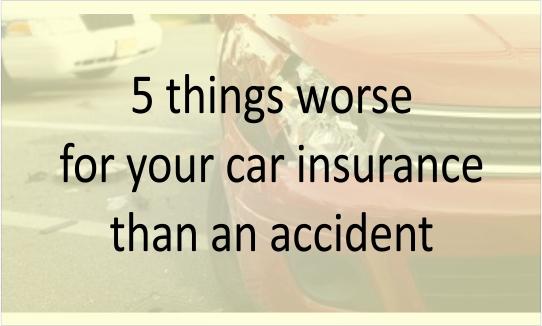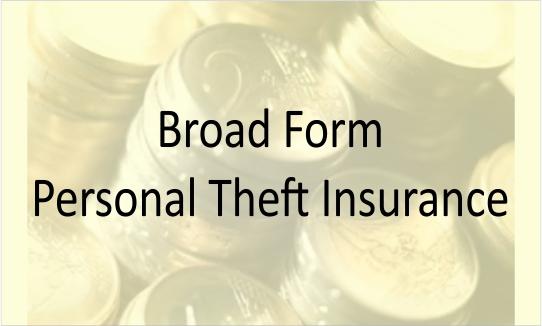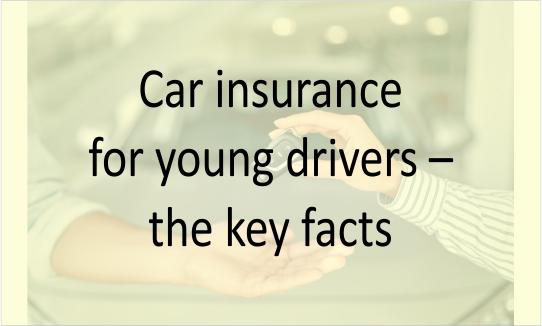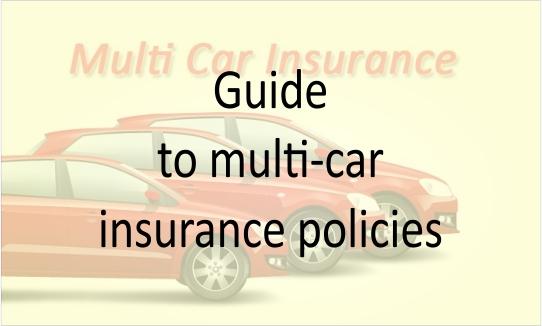5 things worse for your car insurance than an accident

It turns out that there are other driving infractions and changes to your insurance coverage that will crank up your auto rates even more than an accident. While a DUI is an obvious one, who would have thought that a lousy credit rating, adding a teen driver or even speeding tickets can result in a bigger bump than an accident?
What raises your auto insurance rates more than an accident?
We looked at 43 driving situations encompassing common tickets, accidents and scenarios to see which ones result in a higher rate increase than an accident. An accident claim means you will typically pay around 32%, or $459, more a year for insurance.
How much adding a teen driver raises your insurance
Adding a teen to your policy will hike your rates more than an accident.
According to our data, putting a 16-year old male on your policy will result in a 160% increase, which translates into $2,292 on average. If your new driver is female, the pain is a bit less, but not much, expect a 125% increase or $1,782.
The reason why car insurance for teens is expensive is that teens are high-risk drivers, and statistically, males are worse than females. According to data from the Insurance Information Institute which culled data from federal researchers:
- Motor vehicle crashes are the leading cause of death among teens
- Drivers age 15 to 20 accounted for 9% of all drivers involved in fatal crashes in 2016 and 12 percent of all drivers involved in police-reported crashes
- 1,908 drivers ages 15 to 20 died in motor vehicle crashes in 2016
Inexperience on the road can lead to accidents, which results in claims. "It's statistically proven that since teenager drivers don't have the experience that their parents have behind the wheel, they take longer to react to certain situations they are faced with when driving," says Charlotte Burr.
Expect to pay higher rates until age 25, though your premium should drop a bit for every year your teen stays ticket and accident-free.
DUI and car insurance
A driving while intoxicated conviction will hike your rates, on average, by 79%, or $1,131 yearly. In many states, a DUI stays on your record for five, seven, 10, or even more, years, so this infraction adds up over time, compared to accidents, which typically drop off your record after three years.
Still, DUI insurance rates vary significantly among car insurance companies.
Reckless driving
Getting cited for reckless driving is a huge red flag for insurers. They will bump up your rates an average of 73% or $1,046.
"A reckless driving ticket is usually enough to cause a large increase in premium because most insurance companies would classify that as a ‘major’ violation,” advises David Miller, VP Client Executive with The Plexus Groupe.
The definition of reckless driving can vary by state but in general. However, if you are out on the road showing a willful or wanton disregard for safety, you may have a reckless driving ticket in your future. Just a few actions that may put one of these tickets on your record:
- Driving 25 miles per hour (or more) over the speed limit
- Street racing another vehicle
- Attempting to elude a police officer
- Passing another vehicle on a two-lane highway when visibility of oncoming traffic is limited
In addition, this type of infraction may stay on your driving record (and your insurance record) for much longer than a simple speeding ticket or even an accident. Reckless driving is considered a "serious" offense by law enforcement and insurers so expect it to ding your rates for five to seven years depending on where you live.
Does bad credit affect car insurance? Yes!
Insurers put a lot of stock in credit ratings. You’ll pay a higher premiums if yours is sub-par.
"Insurance companies have shown a correlation between those with bad credit and a higher rate of filing claims. Insurance data shows that those who have bad credit tend to make more claims and those claims tend to be more costly," says Gusner.
Insurers started using credit data in the 1990s and now most insurance companies take into account your credit scores when setting premiums. Currently, there are only three states that prohibit insurers from using credit scores when setting rates, California, Hawaii, and Massachusetts.
Car insurance for drivers with bad credit costs an average of 71% or about $990 more a year than for those with good credit. But, if you shop your policy after a credit ding, you can still save.
Two speeding tickets: Double trouble for car insurance rates
While one speeding ticket on your record is usually not the end of the world, if you get two in a short period of time (think a year or less), your insurer may label you a high-risk driver and your rates will absolutely be headed up.
According to our data, two speeding tickets of 11 mph or more over the limit on your record will result in a 43% increase or $610. A single ticket on your record is a bit more manageable with the rate increase falling in the 22% to 30% range. You will be paying these higher rates for at least three years as you wait for the tickets to drop off your record.
It should be noted that the exact increase will vary by both the state and insurance company.
How much does car insurance go up after an accident?
While we’ve highlighted several instances worse for your rates than an accident, bear in mind that your insurance rates are typically going to spike if you’re involved in a crash. As outlined in the table below, about 26% to 32% on average.
Bodily injury liability insurance covers the costs associated with injuries to the other people involved in the accident. This includes medical bills, loss of income, legal fees if you are sued as well as pain and suffering. A bodily injury claim will bump up your rates 32% or $459 on average.
The rate increase will vary by the severity of the resulting claim (how much the insurance company has to pay out) as well as how many other infractions you have on your driving record.
Accidents and claims tend to stay on your insurance record and impact your rates for at least three years and sometimes five. That varies by insurer. If you have an accident claim on your record and add a second one, expect your premium to go up dramatically.
How do I lower my car insurance rates?
Accidents, tickers and other scenarios we’ve outlined will lead to higher premiums but that doesn't mean you are stuck paying sky-high insurance rates forever. There are a few things you can do to lower your premium:
Shop your coverage: Shopping around for different coverage is often the best way to lower your premium. Insurers rate risk differently (they all have proprietary systems) so premiums can vary dramatically between insurance companies. Always make sure you’re comparing apples to apples when it comes to deductibles and coverage levels.
"If your rates have gone up dramatically, you should get quotes from at least three other insurance companies to see if you can find a more affordable rate with a different insurer," advises Gusner.
One thing you should never do is drop your coverage levels to save money. While this may result in savings, it can be a huge financial mistake if you’re involved in a serious accident.
Fight the ticket: While this won't work for most of these infractions, if you find yourself on the hook for a reckless driving ticket (or your second speeding ticket), you should do what you can to fight it. Reckless driving is considered a major infraction so if there is any possibility of getting it reduced you should take it. Hiring an attorney is probably the best option for a major ticket like reckless driving.
The same advice stands for speeding tickets. "We recommend consulting with an attorney even for speeding tickets. In many states, a traffic ticket attorney can get a moving violation ticket reduced to a non-moving violation, which will help keep points off your driving record. This is the key to maintaining lower rates," advises John Espenschied of Insurance Brokers Group.
Raise your deductible: Increasing your deductible will help lower your premium. "Increasing your collision deductible should make a pretty good dent in your premium. You will break even rather quickly. Let's say you are going from a $500 deductible to a $1,000 deductible and you save $125 per year. Four accident-free years and you break even and every year thereafter, you are money ahead," says Jim Kirchen, president of Kirchen Insurance, based in Wisconsin. Always choose a deductible that you can easily afford in the event you have to make a claim.
Discounts: Insurance companies offer many car insurance discounts and they will all help lower your rates. Always make sure you’re getting the discounts you’re entitled to receive. Ask your agent to do a discount review to make sure all available discounts are being applied to your policy. For instance, if you add a car when you add a teen driver, you may get a multi-car discount.
Adding a teen driver: Ways to save
An inexperienced teen driver on your policy will bump up your rates no matter what but there are a few things you can do to help lower your costs:
Good student discount: If your teen driver is a good student (B average or better), you should be able to wrangle a good student discount from your insurer. The discount will vary by insurer but expect around 10%.
Defensive driving course: Many insurers offer a discount for drivers who pass a defensive driving course. Check with your insurer for approved courses and send your teen.
Safe, slow and older car: Older cars tend to be cheaper to insure, and making your teen driver drive a sedan instead of a sports car will absolutely save money. In addition, if the car is old enough, you may be able to dump certain coverages.
Accident forgiveness: "Add accident and violation forgiveness to your auto policy. Not all auto insurers offer this but if you have access to it, you should definitely add it to your policy. If your teenager causes an accident, your rates will probably double or triple without this endorsement," warns Burr.
Broad Form Personal Theft Insurance
Broad Form Personal Theft Insurance covers the theft or loss of personal assets. DEFINITION of Broad Form Personal Theft Insurance Broad frorm personal theft insurance covers the theft or loss of personal assets. It can be placed on all personal property, and is on an all-risk basis meaning no matter whether the loss is from vandalism, theft or loss, the same coverage will apply. A limited form of broad form insurance is more commonly known as personal theft insurance. BREAKING DOWN Broad Form Personal Theft Insurance There are limitations on the coverage of personal assets which are most often subject to theft such as jewelry, coins and securities, among others. Personal assets insurance is commonly included in homeowners and auto insurance, however, additional insurance may be purchased. How Personal Theft Insurance Works This type of coverage is standard on homeowners and renter policies. The limitations and exclusions built into…
Car insurance for young drivers - the key facts
Young drivers’ car insurance is likely to be very expensive and as a new driver it’s good to know about different coverage levels and what affects how much you pay. Here you can find out everything you need to know about new driver car insurance, how to get the best deal and reduce your premiums. Young driver insurance tips So you’ve passed your test, you’ve chosen a car, and now all you need is insurance! If you’re driving without car insurance then you’re breaking the law. You could have your vehicle confiscated, be issued a penalty fine, and have to pay to have your car released. What’s more, if you’re uninsured and have an accident, you’ll be liable for the cost of everyone else’s injuries, their damages, compensation and repairs, even if the accident wasn’t your fault…
Guide to multi-car insurance policies
One of the easiest ways to save on car insurance is to insure more than one car on the same policy. When you get married, for example, you’ll save because married drivers tend to file fewer claims and thus get lower rates. A good driver discount requires a clean record. But a multi-car discount doesn’t require a lifelong commitment or scrupulous attention to speed-limit signs. Instead, it’s a reward for bringing your insurance company additional business. What are the requirements for a multi-car policy? Does the coverage need to be the same on each vehicle? Can I insure a car and a motorcycle on the same policy? What are the benefits of a multi-car policy? How big is a multi-car discount…


